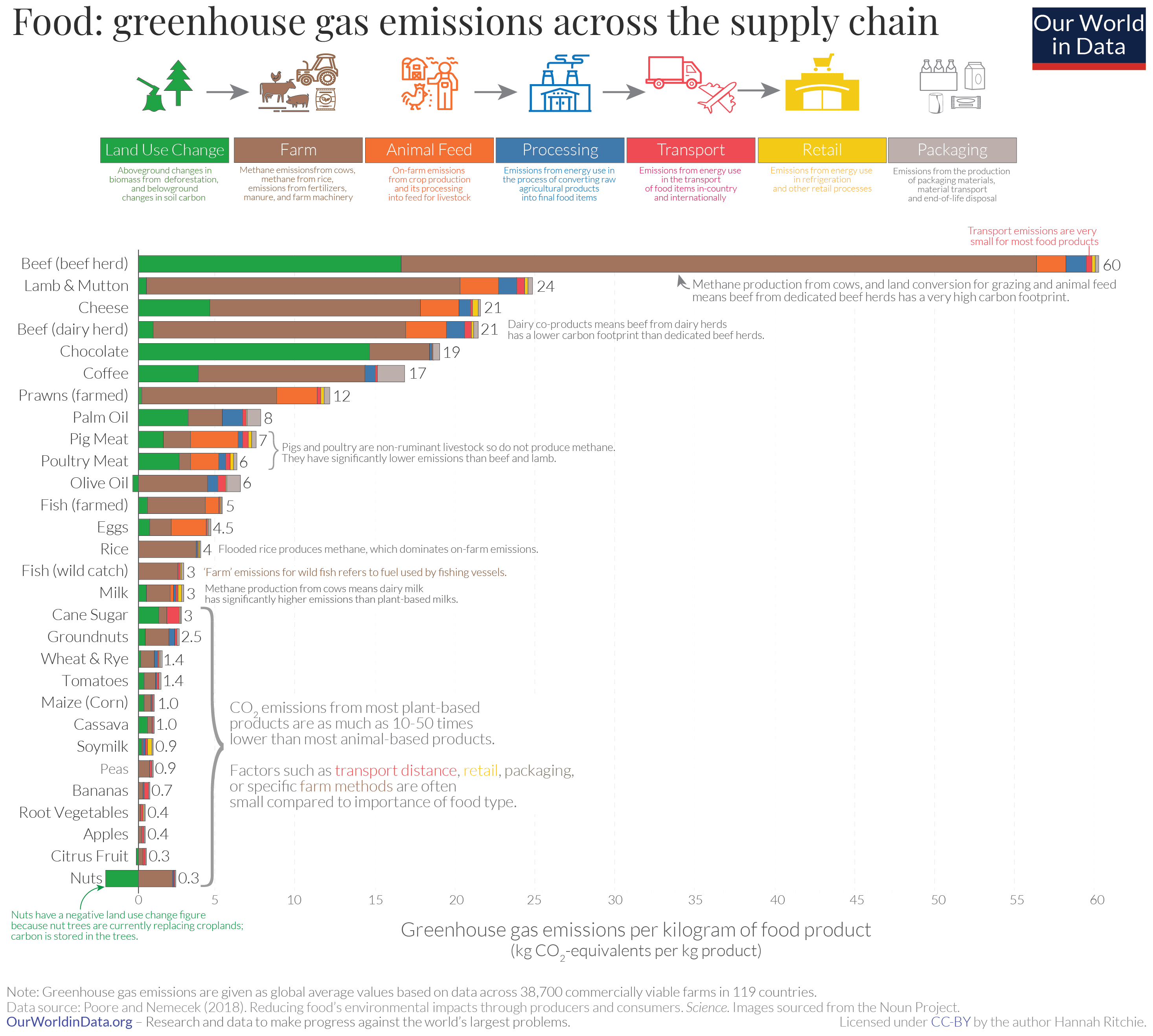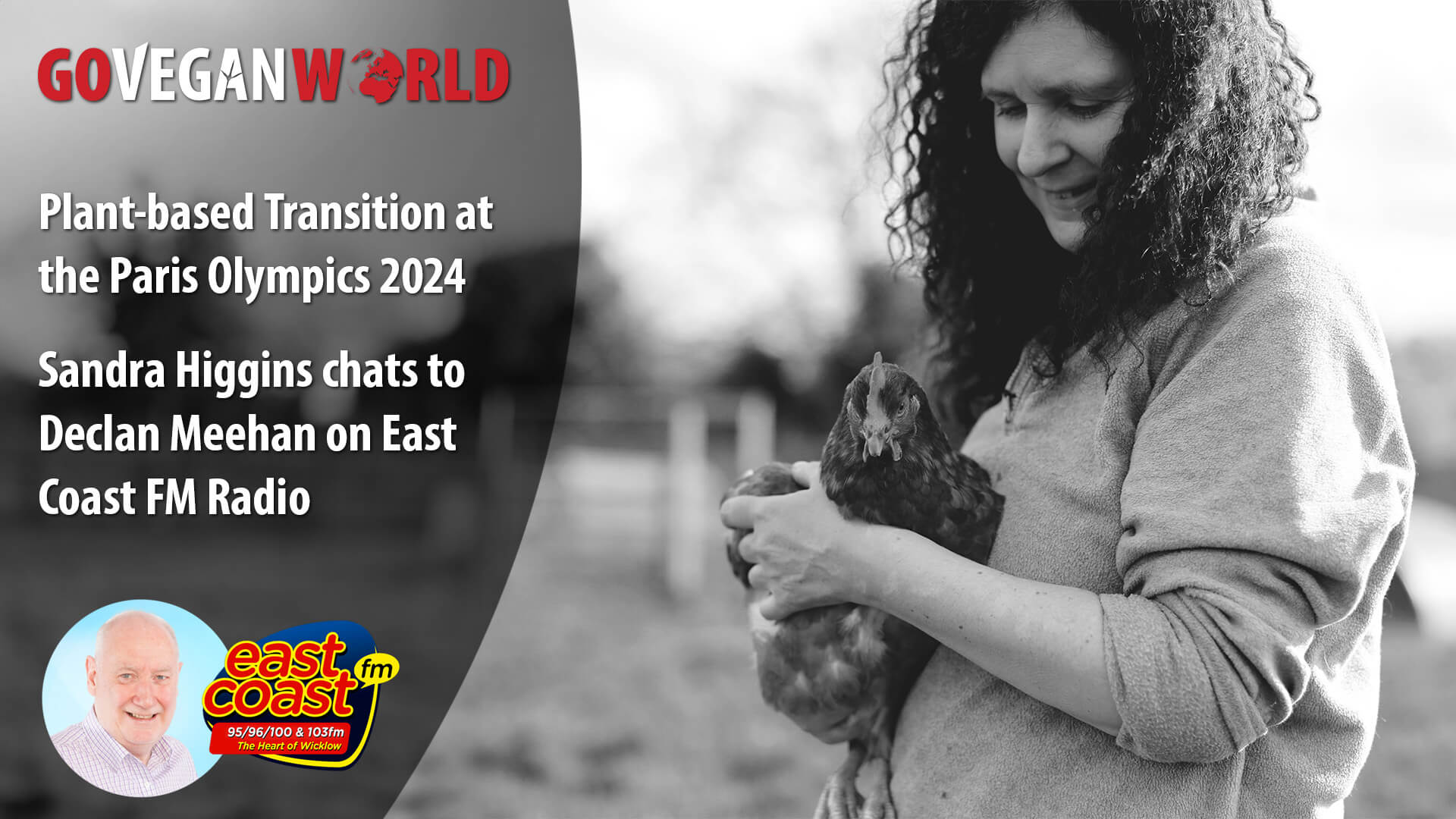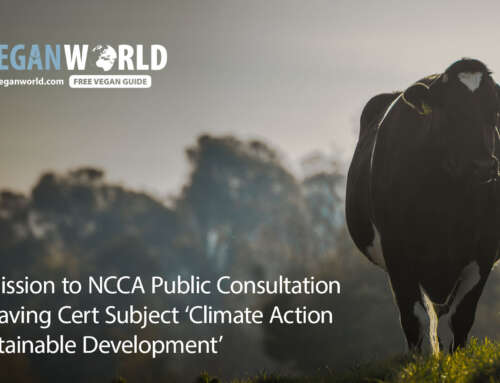Paris Olympics 2024 aims to replace up to 60% of animal products with plant-based foods.
Given the very urgent need to transition to plant-based consumption and production for environmental and climate reasons, as well as for animal ethics, this is a good move.
The global food system emits up to a third of total GHG emissions. The contribution of animal agriculture is estimated at 16.5 (Twine, 2021) to as much as 28.1% (Poore and Nemecek, 2018)1. Research shows that, in comparison to a diet containing 100g flesh daily, a plant-based diet can reduce emissions by up to 70%. In fact, a vegan diet without any animal products is responsible for an astonishing 93.5% less methane emissions (Scarborough, 2023).2
The aim of the Paris Olympics Programme is to be more sustainable and reduce previous food emissions by half. Single use plastics and disposable delph will no longer be used and the aim is to use seasonal, organic, and locally produced food, where possible. It is worth noting that the type of food produced and consumed (i.e. plant versus animal product) is much more environmentally relevant than where it was produced because food miles only contribute a fraction of the emissions (Ritchie, 2020)3.

Sandra Higgins discussed the move with Declan Meehan on East Coast FM radio.
Declan expressed concern that plant-based foods would not meet the nutritional needs of athletes. A carefully planned vegan diet is suitable for all stages of life, including for athletes. In fact, some studies4 show that athletes eating a plant-based diet have improved cardio-vascular health, performance, and recovery rates than those eating animal products.
Declan also addressed the issue of taste and dietary choice. However, when we consume with the sole aim of immediate gratification, with little or no concern for the consequences of our choices on others, not only do we violate the rights of the animals used as food, we also violate the rights of other humans who are entitled to a safe and healthy environment. It has become very clear this year that the plant is heating at an accelerated rate. If we do not transition urgently to a plant-based system of food production and consumption, we will find ourselves on an earth in which it is impossible to produce any food at all and in which life will be unpleasant at best, and unsustainable at worst. This is not simply conjecture from an animal rights organisation with an interest in promoting a vegan diet. It is the consensus5 of hundreds of the world’s leading climate scientists.
GHG emissions are not the only problem associated with using other animals as food. Animal agriculture uses 77% of global farmland yet produces only 18% of our calorie needs. It uses 70% of the world’s fresh water yet pollutes 80% of our rivers and lakes. In comparison to a diet containing animal products (even in relatively small amounts), a vegan diet is responsible for 70% less water pollution and land use, 66% less wildlife destruction and 54% less water use.
Therefore, the Paris Olympics is to be commended for its attempt to replace up to 60% of animal products with plant foods.
It will be interested to see how the food is labelled at the events. Even with a 60% reduction in animal products, specific foods and meals may not be vegan friendly unless they contain zero animal products.
Check out the Paris 2024 Food Vision document here6. You can listen to Sandra’s interview with Declan Meehan on this link.
1 Twine, R. Emissions from Animal Agriculture—16.5% Is the New Minimum Figure. Sustainability 2021, 13, 6276. https://doi.org/10.3390/su13116276
2 Scarborough, P., Clark, M., Cobiac, L. et al. Vegans, vegetarians, fish-eaters and meat-eaters in the UK show discrepant environmental impacts. Nat Food 4, 565–574 (2023). https://doi.org/10.1038/s43016-023-00795-w
3 Ritchie, H (2020) https://ourworldindata.org/food-choice-vs-eating-local
4 Barnard, N.D.; Goldman, D.M.; Loomis, J.F.; Kahleova, H.; Levin, S.M.; Neabore, S.; Batts, T.C. Plant-Based Diets for Cardiovascular Safety and Performance in Endurance Sports. Nutrients 2019, 11, 130. https://doi.org/10.3390/nu11010130
5 World’s top climate scientists expect global heating to blast past 1.5C target, Damian Carrington, The Guardian, 8th May, 2024.
6 Celebrating the Modern Taste of France, Paris 2024 Food Vision






